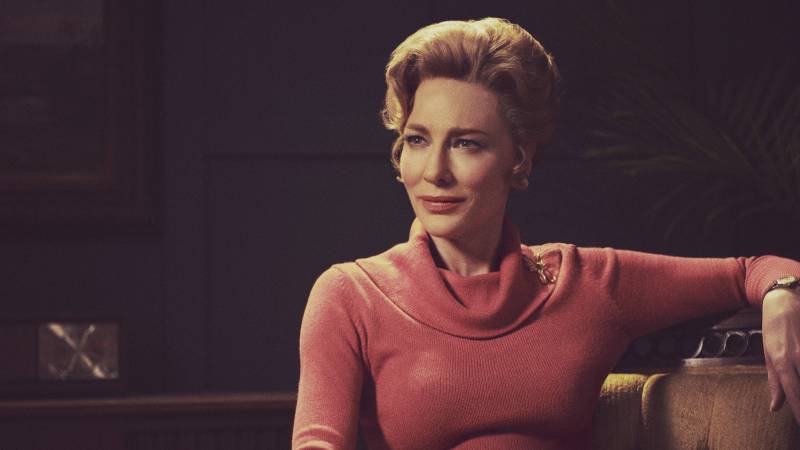“With everything else going on in the world, now I gotta spend almost nine hours of my life thinking about Phyllis Schlafly?”
It only seems honest to admit to this reaction to the approach of Mrs. America, a nine-part miniseries created by Dahvi Waller. It was made under the FX Networks umbrella, but it’s available only on Hulu, which drops the first three episodes on April 15. The series is not exclusively interested in Schlafly, but she is its point of greatest fascination, as it tells the story of the battle over the Equal Rights Amendment in the 1970s.
What has set Mrs. America apart since it was announced is its large and impressive cast: Cate Blanchett as Schlafly, the conservative woman who railed against feminists as immoral opponents of decent housewives everywhere and successfully generated a large backlash against the ERA. Rose Byrne as Gloria Steinem, the creator of Ms. magazine and a representative of the movement whose prominence would remain controversial both inside and outside it. Uzo Aduba as Shirley Chisholm, the presidential candidate who found much of second-wave feminism to be, at best, condescending to her candidacy. Margo Martindale as New York congresswoman Bella Abzug, Tracey Ullman as influential author Betty Friedan, and on and on and on.
At the center is Blanchett’s deployment of her most patrician affect (which is saying something) to portray Schlafly as an ambitious woman eager to gather power, who originally tries to obtain it as a foreign policy commentator. Finding that door largely closed to her—in part because of sexism—she realizes that while they don’t want her opinions on foreign policy, she is very much welcomed by the male politicians in her circle when she is fighting and deriding other women. Feminists, specifically. Blanchett’s version of Schlafly adopts her antifeminist positions more because they are her path to power than because they are her greatest passion, although there’s plenty to indicate she believes in them at least enough to support their imposition on other women. (As other characters repeatedly point out, Schlafly herself is hardly living the life she advocates as the one most noble for women: Far from a housewife, she is essentially a professional full-time lobbyist.)
It’s curious. The performances in Mrs. America are, as you’d expect, uniformly excellent. But there is something that feels not quite complete about it. Perhaps it’s that the series’ reach exceeded its grasp. Because about half of the narrative energy is spent on Schlafly and about half on all the women in the feminist movement put together, they all, despite the marvelous and nuanced portrayals, struggle to be fully realized. Martindale has a couple of very moving scenes as Abzug, whose moment is passing between the beginning of the 1970s and the end, and whose carefully crafted political skill becomes disappointing for the women who want her to stand firmer on matters like gay rights and racism. Byrne shines in the moments when Steinem proves young enough and progressive enough to be more aware than some of her colleagues of the racism inherent in the movement she’s helping to lead, but not quite able—or is it willing?—to make eradicating it a priority.

9(MDAxOTAwOTE4MDEyMTkxMDAzNjczZDljZA004))

